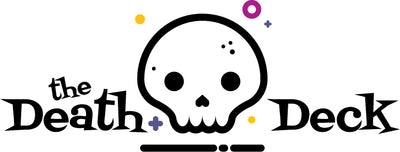 On the month of my sixth anniversary working in the emergency department of a community hospital in Los Angeles, I have written some suggestions for how you can prepare for a medical emergency. People don’t plan to come to the ER. They are brought by ambulance or a concerned family or friend due to a medical crisis. Sometimes, people are unconscious or unable to provide information. Often, we may not even know their identity.
On the month of my sixth anniversary working in the emergency department of a community hospital in Los Angeles, I have written some suggestions for how you can prepare for a medical emergency. People don’t plan to come to the ER. They are brought by ambulance or a concerned family or friend due to a medical crisis. Sometimes, people are unconscious or unable to provide information. Often, we may not even know their identity.
When a person has taken steps to prepare for an emergency like the ideas outlined below, the medical team is able to quickly notify family members and have important health information that they may need to make decisions about the patient’s treatment. As the Medical Social Worker in the ER, I am often called upon to try to find a next of kin when a person arrives alone or to try to figure out the identity of a “Jane Doe.” No family member wants to have a situation where they don’t know that their loved one has had a stroke or heart attack. These minutes count when a person is in critical condition and may not survive. So, what can we do to be more prepared for this type of emergency?
- Set up your Medical ID on your iPhone. This feature is accessible on your locked phone and contains very important information for medical professionals and for identification purposes. It includes your emergency contact information, allergies, medical conditions, and organ donation status. It takes less than 15 minutes to enter the information. For Android users, you can provide emergency information on your locked screen as well.
- Complete an advance directive. In this document, you will designate a decision maker to make healthcare decisions for you in the event that you cannot. An advance directive also gives you an opportunity to have a say in how you will be cared for. Prepare For Your Care has advance directives for each state that guides you to provide quite a bit of information on how you would like to be cared for.
- Make copies of your advance directive and provide directly to your physical, local hospital(s), and to the person that you designate as your decision maker.
- If you have a serious illness, are very frail, or elderly, consider completing a POLST. This is a portable physician order that directs your care once you come to the hospital. Included in this document is whether or not you would want CPR. You and your physician talk about your wishes, what type of life and treatments are acceptable to you, then you complete the POLST together. A POLST must be signed by a physician. This form does not take the place of the advance directive, as it does not indicate a health care decision-maker.
- Consider wearing a medical alert bracelet if you have severe allergies, serious illnesses, or have elected Do Not Resuscitate (DNR) as your code status. There are specific bracelets for people to communicate their choice of a natural death over life extension.
- Keep important information handy and in one place. We recommend having hard copies stored in a brightly colored folder. Make sure your family members know where these important documents are located. What should go into this important folder? Your advance directive, a list of medications, medical history or test results (like MRI results), and people to be notified in the event of an emergency.
- In addition, keep the lists and health care documents in an electronic form on your cell phone so that it’s easily accessible at all times.
- If you have a medical emergency, don’t wait or talk yourself out of seeking treatment. When in doubt, err on the side of caution. Know the signs of stroke and heart attack.
- Discuss different medical crisis scenarios with your loved ones. In what situations would you want invasive treatment and interventions? At what point would you want to allow natural death? Use opportunities like when celebrities or your friends/family experience a health crisis to start these important conversations.
- Pick up The Death Deck to further discuss (with a little humor and levity) what’s important to you in the matters of life and death.
